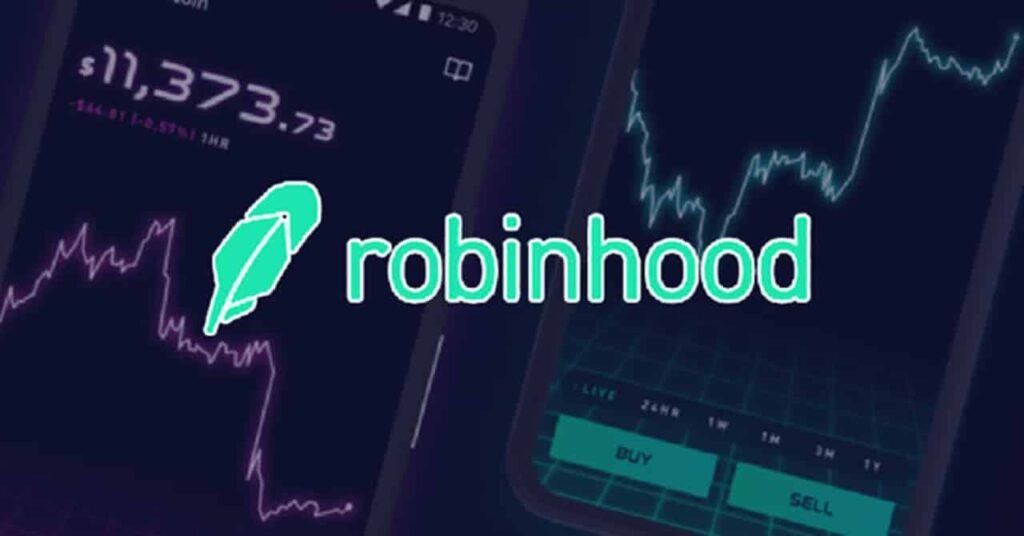- OpenAI has confirmed it did not authorize or endorse Robinhood’s token offering.
- The tokens offer indirect exposure, not actual ownership in OpenAI.
- Always verify the legitimacy of tokenized products before investing.
In a surprising turn of events this week, OpenAI publicly distanced itself from a new investment product offered by Robinhood. The trading platform recently launched tokenized shares tied to private companies like OpenAI and SpaceX, but the AI giant has now stepped in to set the record straight. According to OpenAI, the tokens circulating under its name are neither authorized nor representative of any actual ownership in the company.
This development has caused confusion among investors, especially those eager to gain early access to fast-growing tech startups. But OpenAI’s statement has made one thing absolutely clear: these tokens are not what many people thought they were.
What Exactly Are These Robinhood Tokens?
Robinhood’s newly launched tokens are marketed as a way for regular investors to gain exposure to private companies that are typically out of reach for the average person. Normally, investing in startups like OpenAI is limited to venture capital firms and wealthy individuals. But with this offering, Robinhood is giving users a new path to get involved—at least in theory.
The tokens are issued through a financial vehicle known as a Special Purpose Vehicle, or SPV. An SPV holds a certain amount of equity in a private company. Investors can then buy tokens that reflect their share of that SPV. While this setup might provide indirect exposure to the performance of the underlying company, it does not offer actual equity in the company itself.
So when someone buys an “OpenAI token” through Robinhood, they’re not becoming a shareholder in OpenAI. They’re simply purchasing a stake in the SPV, which may hold some shares of OpenAI, assuming that is even confirmed. And according to OpenAI’s latest statement, that assumption might be premature.
OpenAI’s Strong Rebuttal
In a direct post on social media, OpenAI clarified that it has not partnered with Robinhood in any way. The company went further by stating it did not approve any sale or transfer of equity tied to these tokens. It emphasized that any equity transaction involving OpenAI requires its formal approval, which was not given in this case.
This strongly worded statement was meant to protect the public from being misled. With so much buzz around artificial intelligence and OpenAI’s rise to prominence, it’s easy to see why investors might be drawn to the idea of owning a piece of the company. But OpenAI’s response leaves no doubt that these tokens are not a legitimate path to ownership.
How This Impacts Investors
For retail investors, the news is a sobering reminder that not all tokenized assets are equal. While tokenization has the potential to democratize access to investment opportunities, it also carries the risk of confusion and misunderstanding. When a product is designed to track a private company but doesn’t include actual ownership, the lines between exposure and equity can become blurry.
Robinhood’s intention may have been to innovate, but the lack of official backing from OpenAI raises questions about transparency. Investors who believed they were getting in on the ground floor of a revolutionary AI company may now feel misled.
Moreover, these developments could catch the attention of regulators. As the line between traditional financial assets and crypto-like instruments continues to blur, oversight is likely to increase. In the meantime, it’s crucial for investors to read the fine print and understand exactly what they’re buying.
The Bigger Picture in Tokenized Finance
This incident comes at a time when tokenization of financial assets is becoming a popular trend. From real estate to fine art, companies are experimenting with ways to offer fractional ownership through digital tokens. In theory, this could lower barriers and create new forms of liquidity in traditionally illiquid markets.
However, the OpenAI-Robinhood situation highlights a major challenge: credibility. Without direct partnerships or regulatory clarity, many of these tokenized products risk undermining trust. If platforms are seen as promoting assets without proper backing, it could damage the overall progress of tokenized finance.
Moving forward, the industry may need to tighten its standards. Clear disclosures, verified partnerships, and regulatory oversight will be key to building investor confidence. Until then, retail buyers should approach tokenized products with careful consideration.
Final Thoughts
OpenAI’s quick move to distance itself from Robinhood’s tokens shows how important transparency is in today’s fast-moving investment landscape. While tokenization offers exciting possibilities, it’s not a shortcut to actual ownership in high-profile companies.
The key lesson here is simple: not everything that looks like equity actually is. Before investing in any new product, especially one tied to a big name, make sure to understand what you’re really buying.


